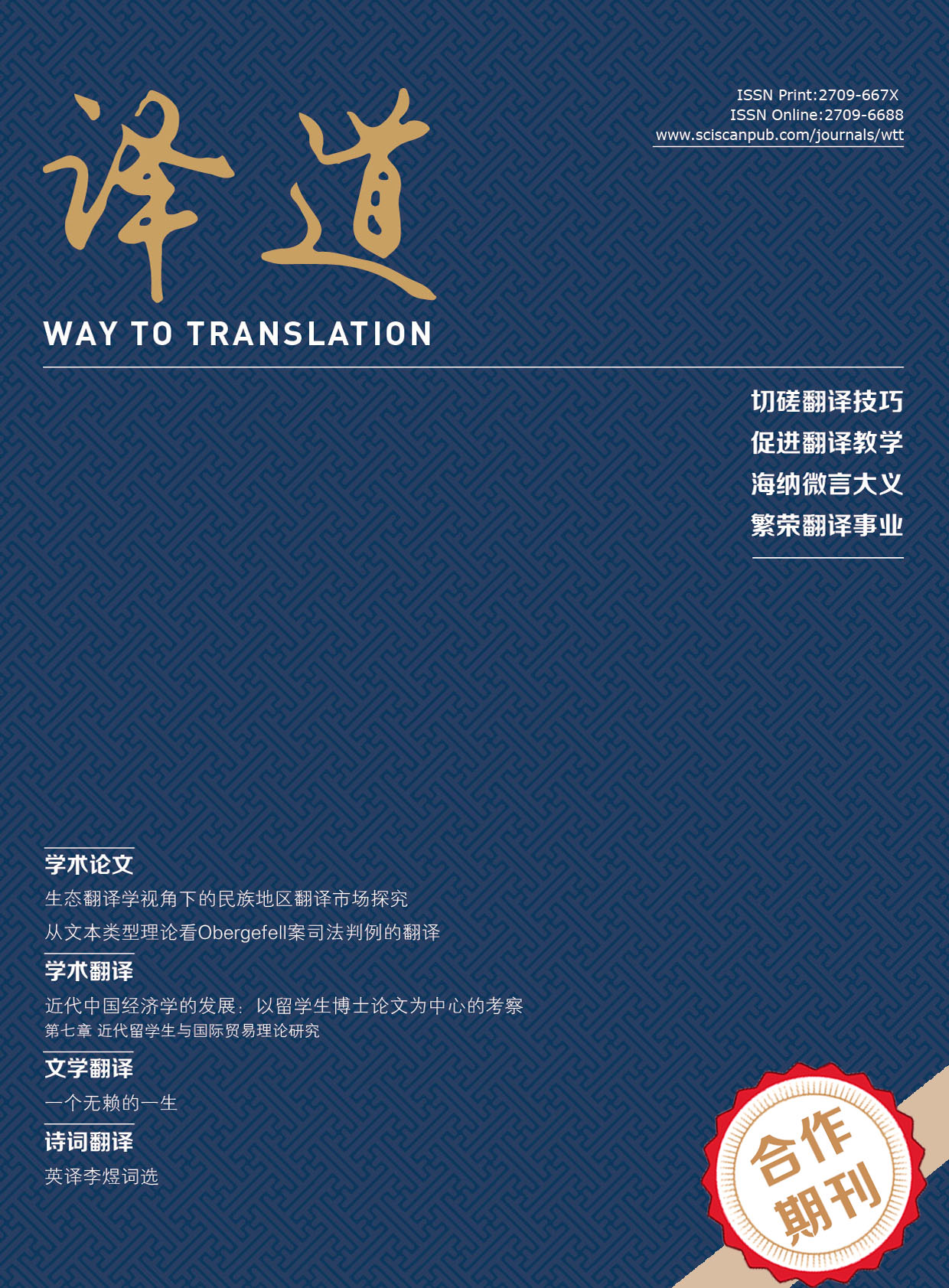Way to Translation
ISSN Print: 2709-667X
ISSN Online: 2709-6688
Contact Editorial Office
Subscribe to the latest published information from SCISCAN
职业译员与学生译员英汉同声传译及欧化汉语现象对比研究对英汉口译教学的启示
A Comparative Study of Europeanized Chinese in E-C Simultaneous Interpreting Between Professional Interpreters and Student Interpreters and Its Enlightenment to E-C Interpreting Teaching
- Authors: 邹粟¹ 朱琳²
-
Information:
1.成都文理学院,成都; 2.华侨大学,泉州
-
Keywords:
E-C simultaneous interpreting; Europeanized Chinese; Student interpreters; Professional interpreters; Comparative study英汉同声传译; 欧化汉语; 学生译员; 职业译员
- Abstract: The research mainly aims to explore the similarities and differences between professional interpreters and student interpreters in terms of the Europeanized Chinese produced in E-C simultaneous interpreting (SI). With the experiment for comparing the SI production between five professional interpreters and nine student interpreters and a questionnaire survey based on the experimental questions, it finds that Chinese Europeanization of professional interpreters and student interpreters are both characterized at lexical level and syntax level. The lexical level involves the improper use of copula, preposition, conjunction, quantifiers, and dynamic auxiliary. The syntax level involves the incorrect use of passive voices and clause postposition. It also finds that the more professional the interpreter is, the lower the Europeanization rate is. In addition, the questionnaire shows that subjects hold different views about the same Europeanized Chinese. There are objective and subjective reasons for Europeanized Chinese produced in E-C simultaneous interpreting. Based on the results of this study, useful suggestions are provided for the improvement of SI assessment and task-based teaching of SI. 本研究旨在探讨职业译员与学生译员英汉同声传译中欧化汉语的异同。通过对 5 名职业译员和 9 名学生译员汉语产出中的欧化现象进行对比实验,基于实验问题进行问卷调查。研究发现,职业译员和学生译员欧化汉语在词汇和句法两个层面都具有显著特征。词汇层面包括系词、介词、连词、量词和动态助词的不当使用;句法层面包括被动语态的错误使用和从句后置。研究还发现,译员越专业,欧化率越低。此外,问卷调查显示,被调查者对同一种欧化汉语类型看法不一。英汉同声传译中欧化汉语现象受到主客观原因影响。最后基于研究结果提出建议,以期对英汉同声传译的译文评价和任务型教学有所裨益。
- DOI: https://doi.org/10.35534/wtt.0104001
- Cite: -
















